I hope it may never be said of the South that she has ceased to appreciate the sacrifices of her men or the patient endurance of her women in her hour of darkness and need. I saw the widow yield to her country her eldest born, on whom she leaned to manage her estate; then another and another son in quick succession until her baby boy of sixteen was called. I saw the wife bid good-bye to the husband, and draw close to her breast the little ones who depended on him for bread, and looking aloft cry: “God pity us.” How fondly do I remember the contending emotions of fervent patriotism, love, and pride in my own heart as I saw my young husband start to the front arrayed in the suit of gray which my willing hands had woven, cut, and made. He who was mine now yielded to God and his country. Shall the South ever forget these things? Never! Sweep away the dust of time! Let nothing dim their lusters! As Rizpah, in sacred writ, stood guard over the bodies of the dead whom she might not bury, and drove away the vultures which would have fed on their bodies, so we will resist and drive away the unholy touch of every harpy who would drag down in the dust the sacred memories of the past. It ennobles us to write of noble deeds. It enkindles in our breasts the sacred flame of heroism, and the hovering spirits of our dead heroes shall inspire us to emulation.
Martha Neel Northen (1839-1918)
(Note to readers: Part IV of this series may be found here; links to the three previous parts are accessible from that part as well.
Mrs. Northen’s patriotic “Appeal to History” forming my epigraph closely resembles sympathetic contemplations my mind has conjured many times in recent years; contemplations upon the sad and pitiful scene as it must have unfolded, when e.g. Mrs. Cary Ann Anderton Morris lovingly embraced, as she said goodbye for the last time to, her farmer husband, Benjamin, and her two eldest sons, Leonard(18) and Seborn(16), sending her men off to defend home and fireside, and the Southern way of life. With a tear in my eye and a lump in my throat have I so closely imagined the scene Mrs. Northen’s first-hand account describes in her missive, to wit:
“I saw the wife bid good-bye to the husband, and draw close to her breast the [four remaining] little ones who depended on him for bread, and looking aloft cry: ‘God pity us.’” While her husband and sons survived the war, Mrs. Morris regrettably did not. It is with perfect assurance as well that my inclusion of such an appeal by such an one as Mrs. Northen to head any portion of his public speeches touching upon the Just Cause of Confederates and the Confederacy, our able orator-historian would, I trust, warmly embrace and approve. In the spirit of Mrs. Northen’s appeal therefore, I give you Part V of “The South Vindicated,” by Judge John Henry Rogers, Esq.):
“To me the sweetest and noblest chapter in the book of our misfortunes and sorrows was the treatment which the South accorded the fallen chief of the Confederacy. His was a pure, a great, and an incorruptible career. He had served the Union with great distinction in high stations, in war and in peace. No ambitious longings for place or power now remained. All hope for his preferment had gone out in the darkness of defeat. Imprisoned and in irons, he suffered for them all. Released without trial, no plea for pardon, disfranchised, broken in health, and tottering with care and age, he returned to his people, to be welcomed as no other man, and in the calm dignity of a private citizen, in his quiet home, he remained their idol, their counselor, and their friend, devoting the last days of his noble life to the preparation of a defense and justification of that people for whom he had been made a vicarious sacrifice. He had never lost their faith, their confidence, their admiration, or their love. There is something strong and deserving of all honor in a people like this.
“We are assembled here for no ignoble ends. We are here to revive no issues settled by that unhappy conflict. We are not here to defame others, or pervert or warp the truth. We are not here to exaggerate or magnify the glory or virtues of one section of our common country at the expense of another; nor are we here to desecrate this occasion, by the gratification of personal ambition, or the acquirement of social distinction or political preferment. We are here that mankind may not forget, or falsehood nor calumny cloud or tarnish the calm judgment of posterity, as to the sincerity of the motives and the honorable conduct of the Confederate soldiers.
“We affirm our desire that our children may understand these things; that they may the more reverence their ancestry; that they may know of their sufferings and sacrifices and be able to defend their good names, and, proud of their achievements, emulate, in the great struggles of the future, if such await our country, the fidelity, patriotism, love of home and country attested by the veterans of 1861 on a hundred bloody battlefields.
“Who would have them forget the Lees, the Johnstons, the Jacksons, and the Hills? Who would have them forget Bragg, Beauregard, Hardee, Price, Polk, and Hood? Who would have them forget that great wizard of the saddle, Bedford Forrest, and our own little Joe Wheeler, Pat Cleburne, the lamented Walthall, and innumerable others? Who would have us forget the grand old man yet with us, and others still spared; and the hosts who made for them names that can never perish from the earth as long as genius and courage and patriotism challenge the admiration of mankind?
“Who would have them ignorant of the glorious charge of Pickett and others at Gettysburg? Who would have them forget the death struggle at Franklin, Tenn., where the Confederates won a glorious victory, but at a cost of eleven general officers killed and wounded and six thousand men – nearly one-fifth of the army – in five hours? Where Gist and Adams and Strahl and Granberry and the intrepid Pat Cleburne fell in the very forefront of battle, and around them in great numbers were strewn their gallant dead?
“Who would have them forget Chickamauga, where friendly darkness shielded the army of the Cumberland from destruction? Who would have them forget Jackson in the Valley of Virginia, whose campaigns have challenged the military critics of England and Germany to find a single error? Dr. Hunter McGuire, Jackson’s corps surgeon, in an address delivered in Richmond in 1897, made this statement:
Therefore it is with swelling heart and deep thankfulness that I recently heard some of the first soldiers and military students of England declare that within the past two hundred years the English-speaking race had produced but five soldiers of the first rank – Marlborough, Washington, Wellington, Robert Lee, and Stonewall Jackson. I heard them declare that Jackson’s campaign in the Shenandoah Valley, in which you, and you and myself in my subordinate place, followed this immortal, was the finest specimen of strategy and tactics of which the world has any record; that in this series of marches and battles there was never a blunder committed by Jackson; that his campaign in the Valley was superior to either of those made by Napoleon in Italy.
One British officer, who teaches strategy in a great European college, told me that he used this campaign as a model of strategy and tactics, and dwelt upon it for several months in his lectures; that it was taught for months in each session in the schools of Germany, and that Von Moltke, the greatest strategist, declared it was without a rival in the world’s history. This same British officer told me that he had ridden on horseback over the battlefields of the Valley, and carefully studied the strategy and tactics there displayed by Jackson; that he had followed him to Richmond, where he joined with Lee in the campaign against McClellan in 1862; that he had followed him in his detour around Pope, and in his management of his troops at Manassas; that he had studied his environment of Harper’s Ferry and its capture, his part in the fight at Sharpsburg and his flank movement around Hooker – and that he had never blundered. Indeed, he added, “Jackson seemed to be inspired.” Another British officer told me that “for its numbers the Army of Northern Virginia had more force and power than any army that ever existed.”
“It is cruel to discriminate, but this tribute from such a source is too rich to be lost. It should go into history as the priceless heritage of our people. I ought not to specify, but will you bear with me for one further incident, pathetic as it is heroic, and glowing with the spirit which animated the sacred dead we strive to honor?
“At Lexington, Va., where the remains of Gens. Lee and Jackson now sleep, is the Virginia Military Institute. It was in successful operation in May, 1864, when Seigel advanced up the Valley. Gen. John C. Breckinridge was sent with an inadequate force to arrest his advance. A corps of cadets, boys seventeen and under, from this school, consisting of a battalion of four companies of infantry, and a section of three-inch rifled guns, were ordered to report to him at Staunton.
“The march was made in two days. Two or three short marches brought him in touch with Breckinridge’s veterans. Their bright, gaudy uniforms, clean and new, their smooth, girlish faces, trim step, and jaunty airs subjected them to severe raillery and all manner of fun from the old soldiers. Breckinridge did not want to use them if it could be avoided.
“Having determined to receive the tack of Seigel at New Market, the boy corps was ordered, in a beating rain, to report to Gen. Echols. It was not long until the bright, new uniforms, bedraggled with rain and mud, presented the corps in a dilapidated and pitiable state; but they moved on and took position on the extreme left of the reserve line of battle. Wharton’s brigade was in advance, and the boy-corps, brigaded with Echols, was in the reserve.
“The order to advance soon came. A slight knoll was reached, and the batteries opened; but, not having the range, little damage was done to Wharton’s men. But when Echols’s men reached it they had the range, and their fire began to tell with fearful accuracy. Let their Colonel tell the rest. He says:
Great gaps were made through the ranks; but the cadet, true to his discipline, would close in to the center to fill the interval, and push steadily forward. The alignment of the battalion under this terrible fire, which strewed the ground with killed and wounded for more than a mile on open ground, would have been creditable even on a field day. They moved steadily forward for more than a mile beyond New Market. When within three hundred yards of the enemy’s batteries, they opened with canister, case shot and long lines of musketry at the same time. The fire was withering – it seemed impossible that any living creature could escape and here we sustained our heaviest loss. The commander fell, but a cadet captain took command of the battalion and moved forward until they had gotten into the first line, when all took shelter behind a fence, and then, after a few minutes, with a shout, a fusillade, and a rush, the enemy fled and the day was won.
“They had gone as far as the best troops in the army. There were none to guy them then. They had challenged the love and admiration of the veterans of the Army of Northern Virginia, and fifty-two of their battalion, of the two hundred and fifty composing it, killed and wounded that day, won them a place they can never lose in history. I cannot tell you what it was that inspired those beardless boys to deeds of noble bearing and death. Whatever it was ran through the Confederate armies.
“These were the sons of the old South. Is it to be despised? Where shall brighter or nobler examples of heroism and sacrifice be found? And may I not revert to the manner in which the war was conducted by the Confederates? To this I point with justifiable pride. It was a splendid race of men that built up the old South. They were the descendants of the Cavaliers. They, like other men, had their faults, but they cherished the glorious memories of a long line of ancestry who despised all that was contemptible, little, and mean; they were sticklers for the observance of the highest sense of honor; they built their lofty characters on the observance of the truth; they hated moral and physical cowardice, and their homes were the habitations of virtue, chivalry, and hospi- tality; but they were conservative; they were lovers of home and the devoted friends of civil and religious liberty. They believed in as little government as was consistent with the maintenance of law and order, and that whatever went beyond this was an infringement upon the liberty of the individual, destructive of that love the citizen owed the State, and tended to destroy the self-reliance and independence of the individual upon whose love, strength, and manhood rested the temple of free constitutional government. What contributions they have made to the betterment of mankind, and what inspiration they have given the great masses who have builded this wonderful country of ours!
“The great Mississippian, the lawyer, the statesman and the General, as great in peace as in war, himself having borne a conspicuously brilliant and honorable part in the heroic struggle of which I speak, in an address delivered at the unveiling of a monument to the Confederate dead at Jackson, Miss., said of these men of the old South of whom I speak, that: “From among them came the statesman who wrote the Declaration of Independence; and, strange as it may sound in this day of universal freedom, it is said that all who signed the Declaration, except those from the State of Massachusetts, and perhaps one or two others, were slave-holders.
“From among them came the Father of His Country, the Father of the Constitution, and the greatest of all its expounders. At the head of the great armies, in the presidential office, in cabinet and court, and in all the nation’s high councils, everywhere in peace and in war, great Southern lights illuminate the annals of America, and shed upon our country’s name its chief honor and renown. From the foundation of the government, through all the epochs of peace and arms, down to 1861, Southern statesmen and orators, Southern philosophers and judges, Southern patriots and soldiers have enacted the brightest chapters of this country’s history, and to them we are indebted for the fundamental sources of its present power.
“The descendants of such men as these conducted the war on the Confederate side. Is it surprising that it was conducted on the highest plane of modern warfare? In no single instance is it recorded, even in the partisan histories already written, that ruin and desolation followed in the footsteps of its armies; nor that their marches were known by “pillars of fire by night and clouds of smoke by day,” nor that the birds of the air could not follow them without carrying their rations.” […] [To be continued in Part VI]
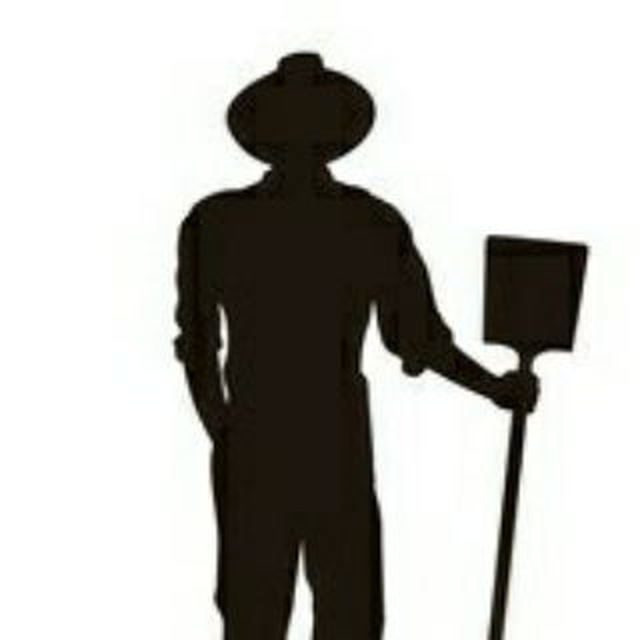

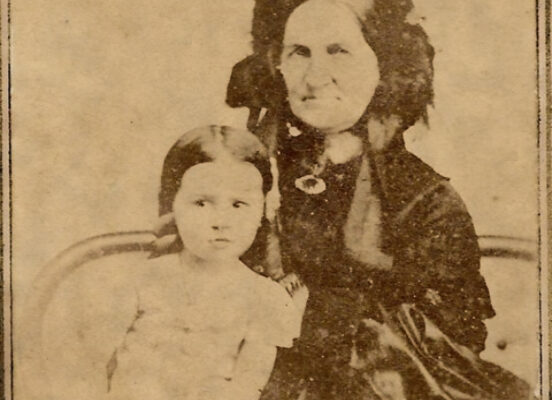
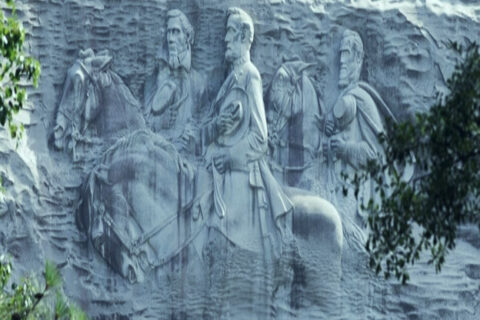

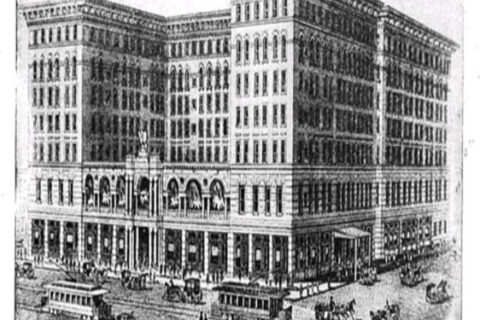
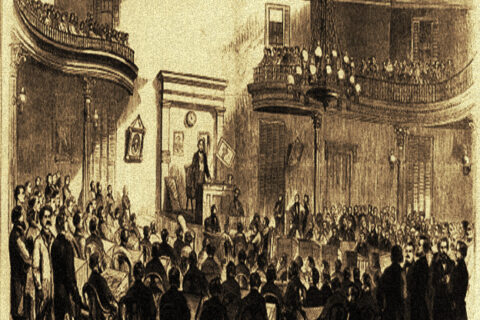
2 comments
Comments are closed.